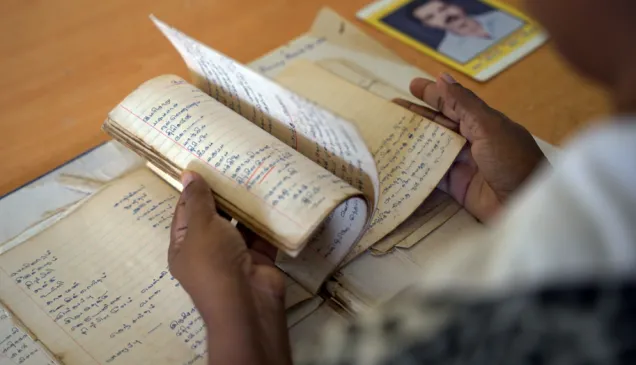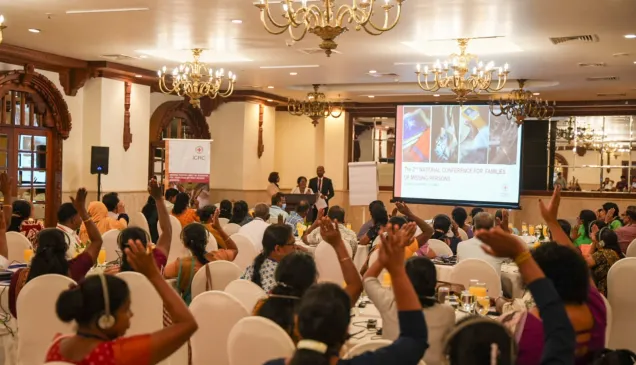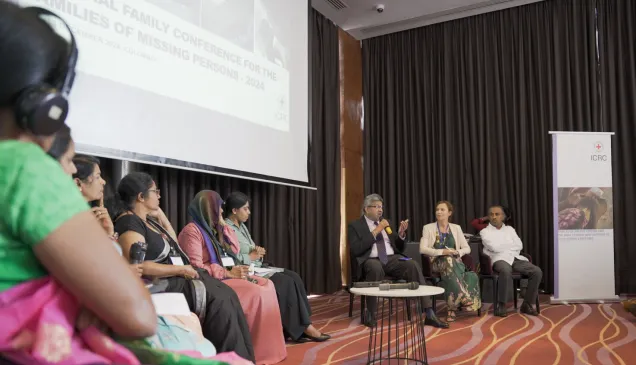Joint ICRC–Sri Lanka Red Cross Society (SLRCS) emergency relief assistance was carried out island-wide with the support of local authorities to improve the daily food consumption of the most vulnerable households affected by the COVID-19 pandemic.
ICRC Sri Lanka COVID-19 response 2020 in pictures
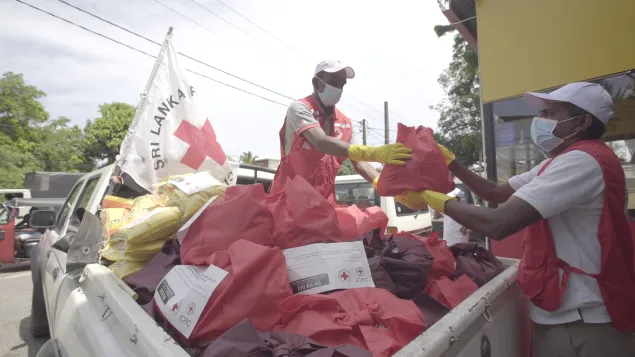
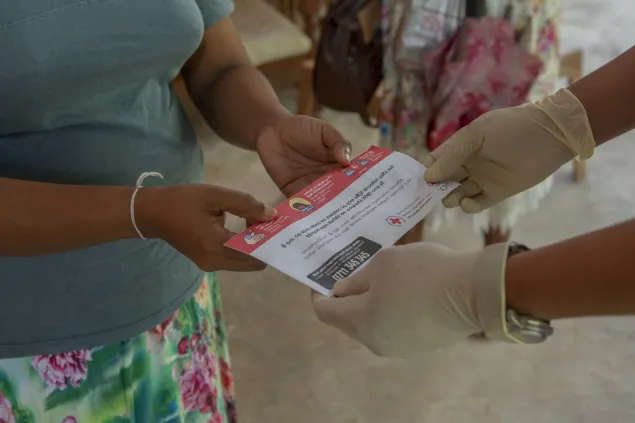
The pandemic brought life to a standstill. The imposition of the countrywide curfew meant that people could not go out to earn a living; those who rely on daily wages were the hardest hit. In partnership with the SLRCS, the emergency relief assistance was carried out in two phases, benefiting 11,148 households (48,240 people) living in 25 districts across Sri Lanka, ensuring they could meet their daily food needs.
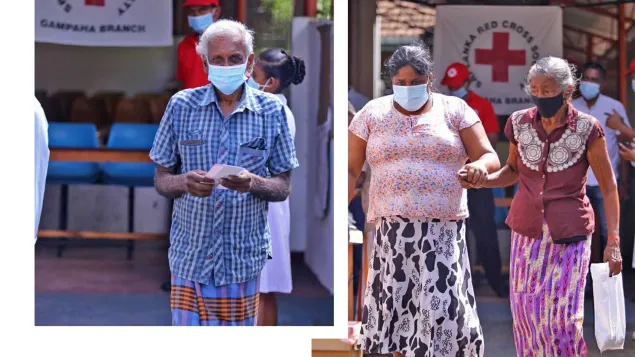
In choosing beneficiaries for the multipurpose cash voucher assistance, the ICRC focused on reaching the most vulnerable through its partnership with the SLRCS. This included households with specific vulnerabilities such as chronic illness, disability, women-headed households and families of those missing due to
conflict.
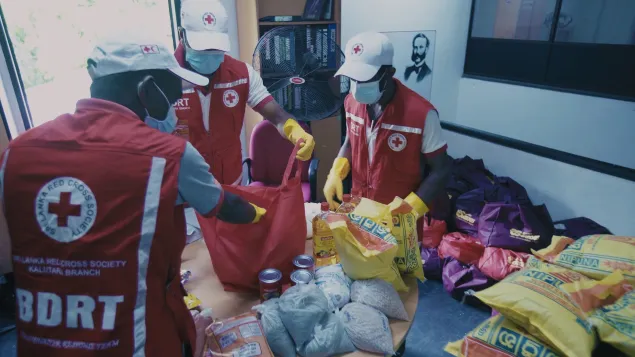
The nutritional value of the food packs distributed was an average of 2,100 kilocalories per person per day, keeping in line with the WFP and UNHCR food assistance guidelines by the UCL Institute of Global Health. One pack of food ration covered the weekly nutritional requirements of a five-member household.
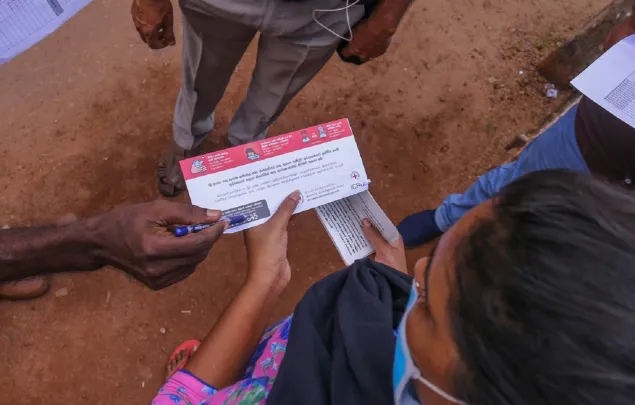
The ICRC also reached out to at-risk refugees and asylum-seeking families from Afghanistan, Iran, Palestine, Pakistan and Yemen currently living in Sri Lanka. The families received cash vouchers to purchase essential food and household items during the pandemic.
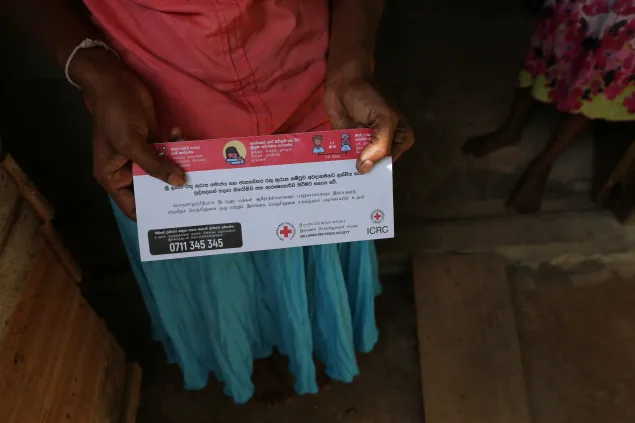
Ensuring food security of vulnerable households during the pandemic was a priority. A system was established to encourage people to provide feedback, raise complaints and give suggestions about the help provided. The hotline number was printed on the envelopes containing the multipurpose cash vouchers
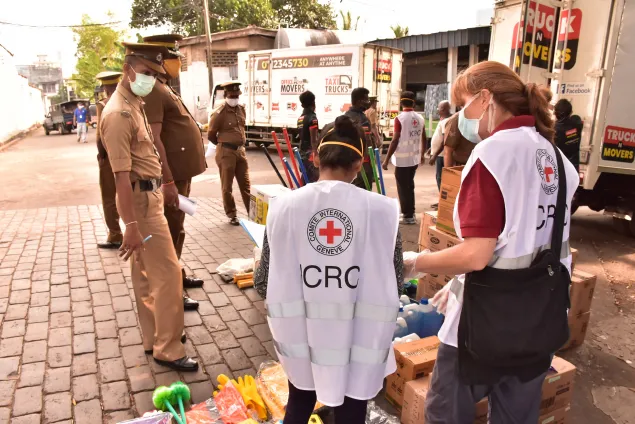
People who are detained are likely to be more vulnerable during a medical emergency such as a pandemic. As part of ICRC’s COVID-19 response plan to promote hygiene, disinfection and waste management, we provided cleaning and disinfection
material to over 30 places of detention, benefiting over 31,000 detainees
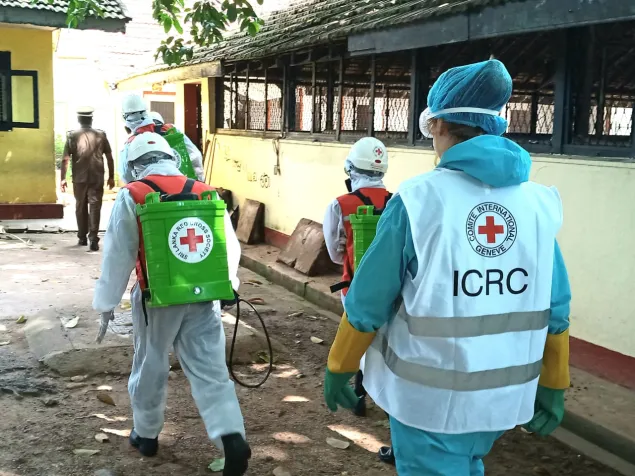
In partnership with the ICRC, the SLRCS supported prison authorities to disinfect the Welikada female prison to help curb the spread of COVID-19.
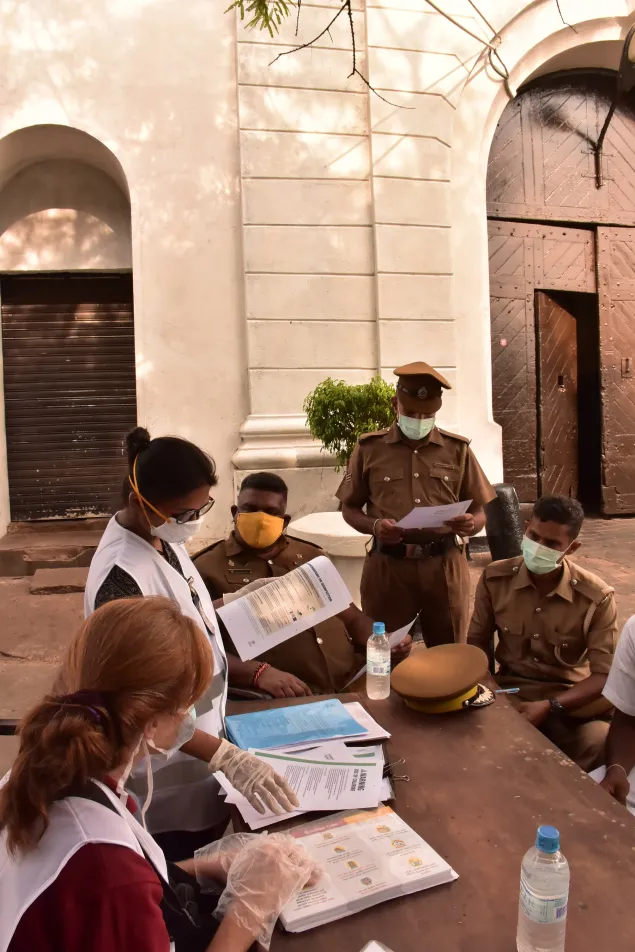
Containing and controlling infection is critical during a pandemic. We provided technical advice and guidance to places of detention during the peak of the pandemic.
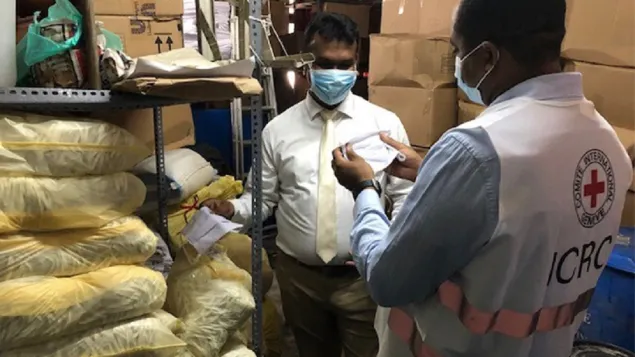
The ICRC facilitated the production of 40,000 protective face masks for prisoners in Sri Lanka. Here, a representative of the Ministry of Health in charge of prisons health services shows an ICRC staff member the
reusable masks produced by the prison industries with materials donated by the ICRC.
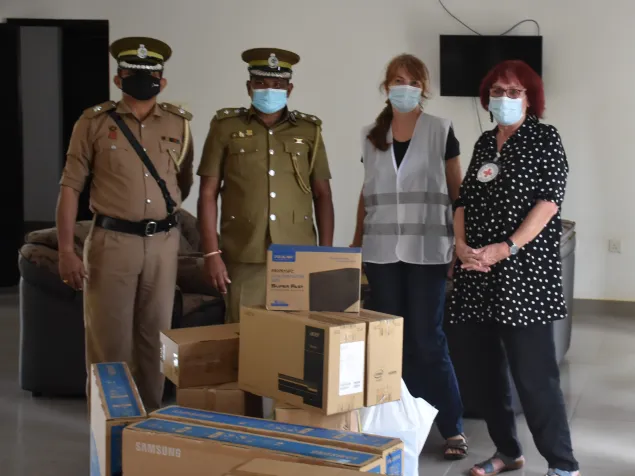
To help those in detention connect with their loved ones during COVID-19, the ICRC supported the video visitation facility initiated by the Department of Prisons. We donated video equipment and supported renovation work required for launching the service.
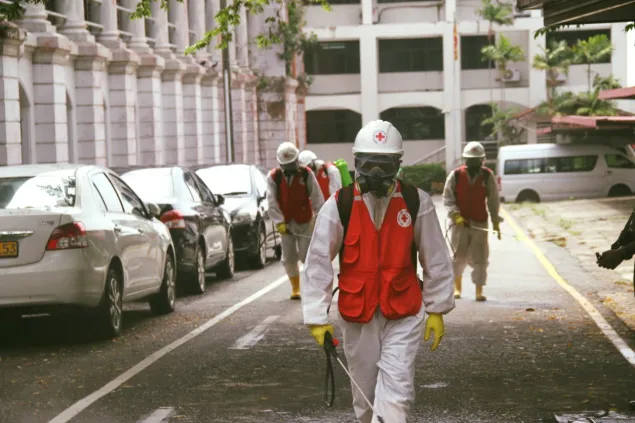
Partnering with the SLRCS, the ICRC worked to reduce the risk of transmission in public places. SLRCS volunteers led the way, disinfecting courts premises in the capital of Colombo and other parts of the country. This included the Attorney General’s
Department, District Courts, High Courts, Supreme Court, Chief Magistrate's Courts, Sri Lanka Law College, Lawyers Complexes and the Ministry of Justice.
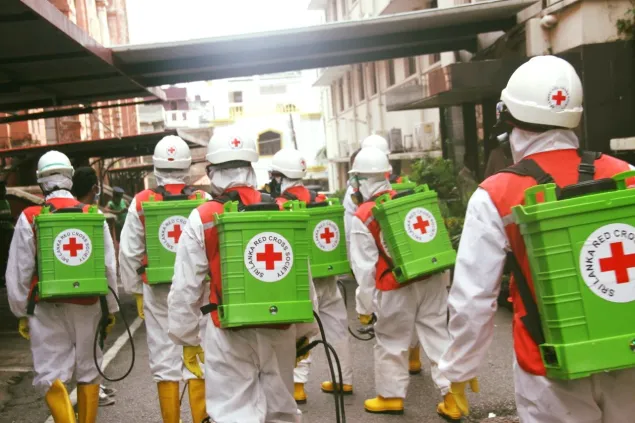
The ICRC organized training sessions as well as provided technical assistance in the form of preventive measures and
guidelines on disinfection to volunteers of the SLRCS.
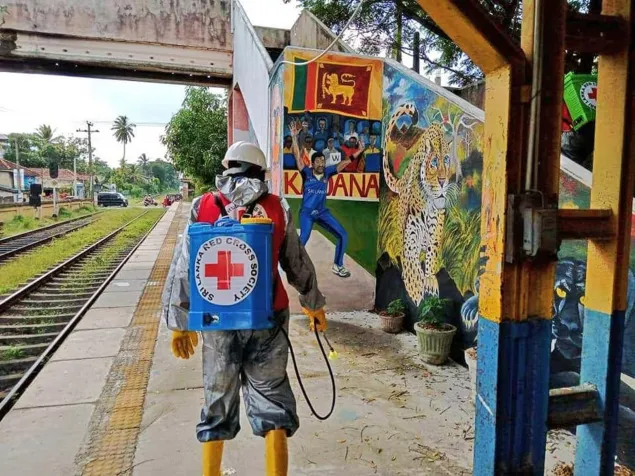
The ICRC – in partnership with the SLRCS – launched the Transmission Risk Reduction programme to disinfect public
places in ten districts: Colombo, Gampaha, Jaffna, Kalutara, Kandy, Kegalle, Kurunegala, Matale, Nuwara Eliya and Puttalam.
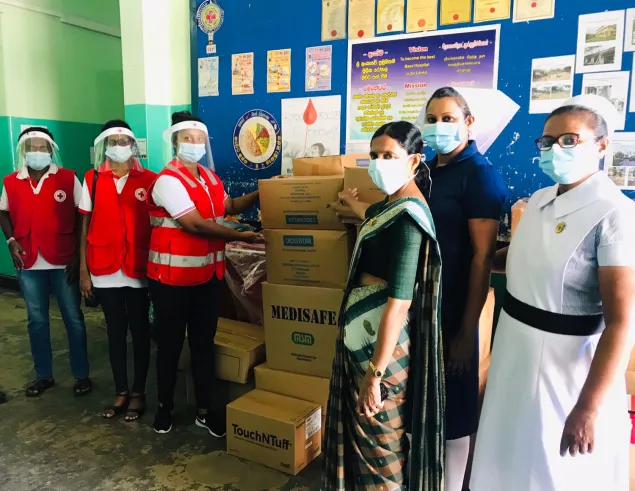
The ICRC’s COVID-19 humanitarian forensic support included the donation of personal protective equipment (PPE),
disinfection materials and medical supplies to medicolegal structures nominated by the Ministry of Health. The support included body bags, PPE kits for the protection of doctors and technicians, disinfection materials for mortuaries and dead body holding areas and supplies for postmortem examination. Here, staff of the Medicolegal Unit of Balapitiya Base Hospital receive the material assistance under the infection, prevention and control project.
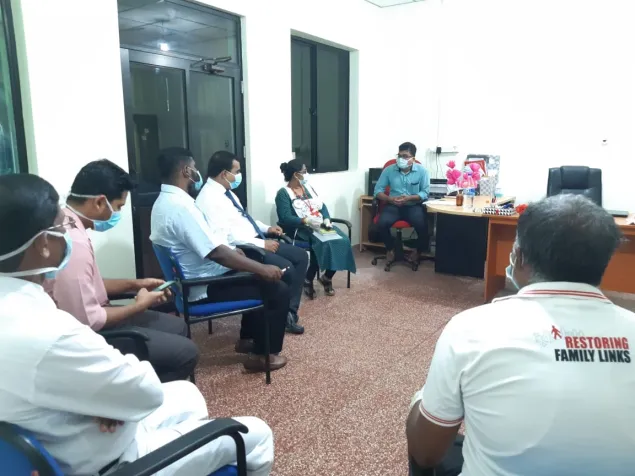
The ICRC and SLRCS held a discussion with the staff of District General Hospital, Mannar, on ensuring a safer environment for operational continuity amidst the pandemic. The ICRC donated PPE, disinfection material and body bags to the mortuary. We also donated a cold chamber unit in response to their need for additional refrigerated storage.
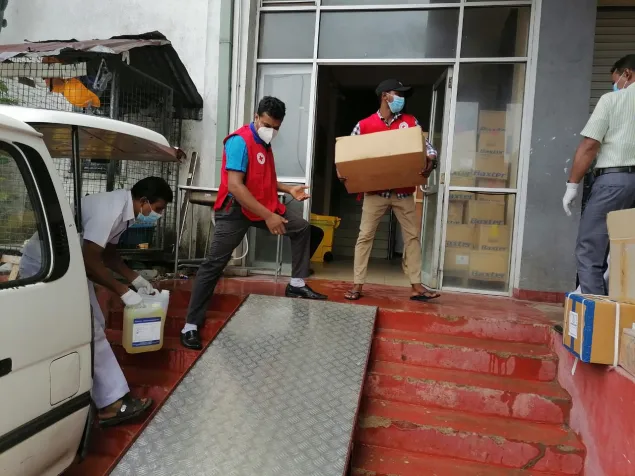
In consultation with the Ministry of Health, the ICRC donated protective equipment and medical supplies to benefit morgues attached to the 35 COVID-19 treating hospitals. Here, protective equipment gets unloaded at Badulla District Hospital.
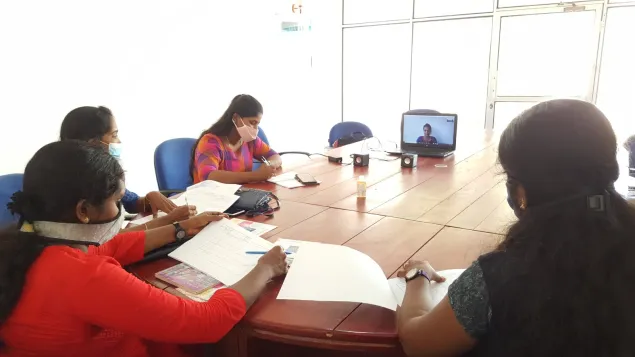
The ICRC in Sri Lanka initiated a Remote Mental Health and Psychosocial Support COVID-19 Response Programme in order to ensure continuity and support to families of the missing people. Working with accompaniers (care providers from the same community), the programme addressed mental health and psychosocial concerns such as retraumatization, aggravated preexisting mental health conditions like depression, anxiety, distress, cases of sexual and gender-based violence and other social issues that may have worsened as a result of the pandemic.
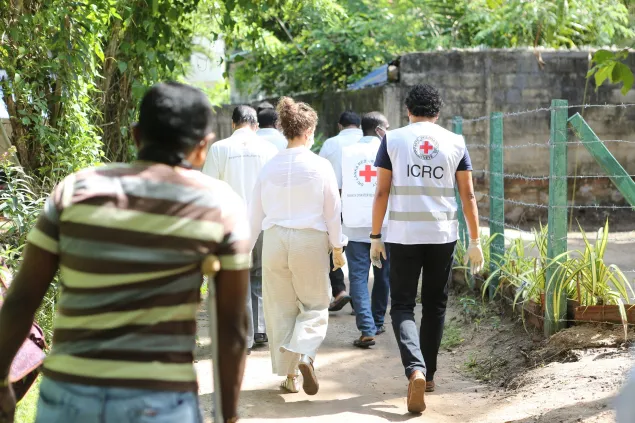
The ICRC will continue its support to the people of Sri Lanka, to help them deal with the challenges brought on by the COVID-19 pandemic.

